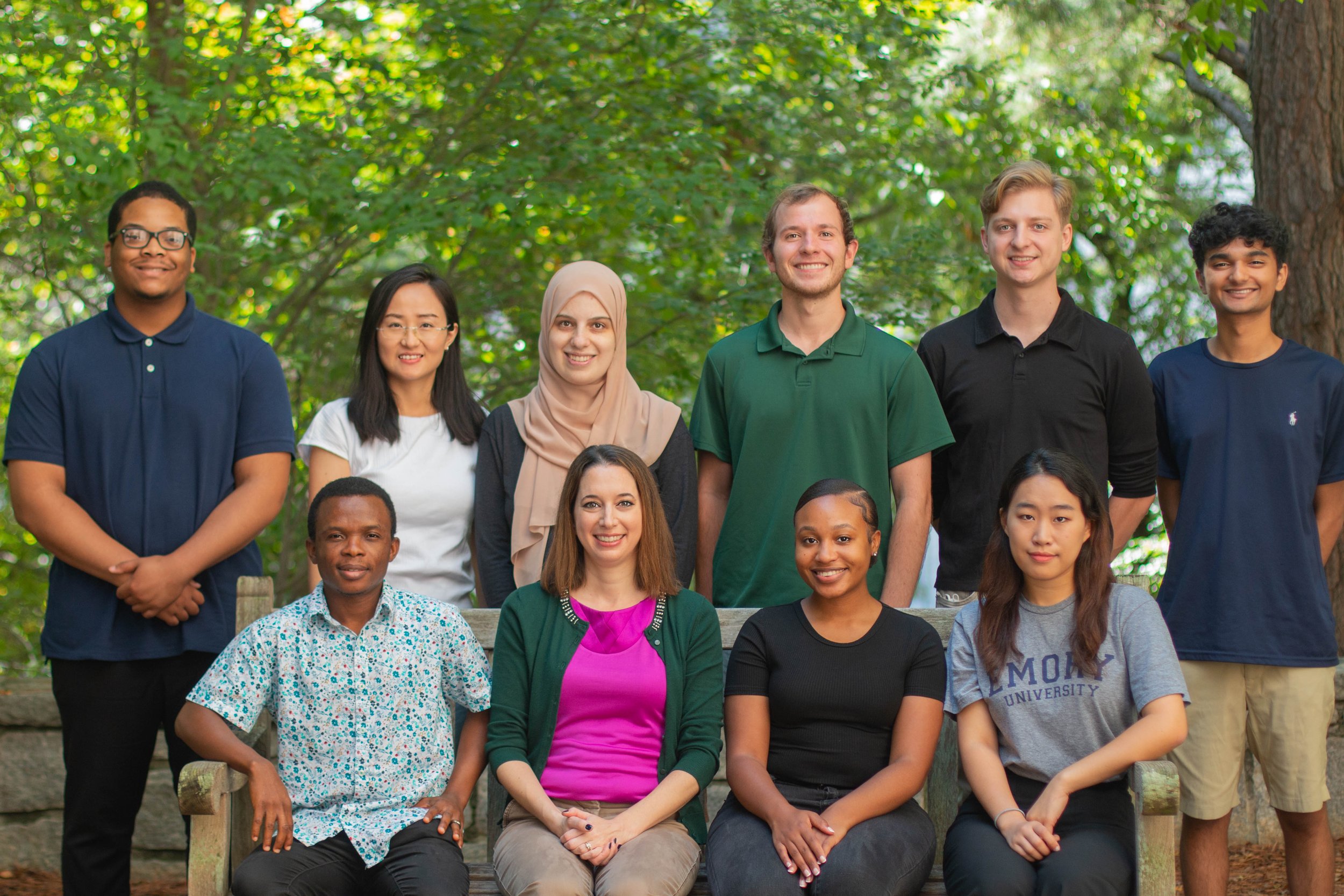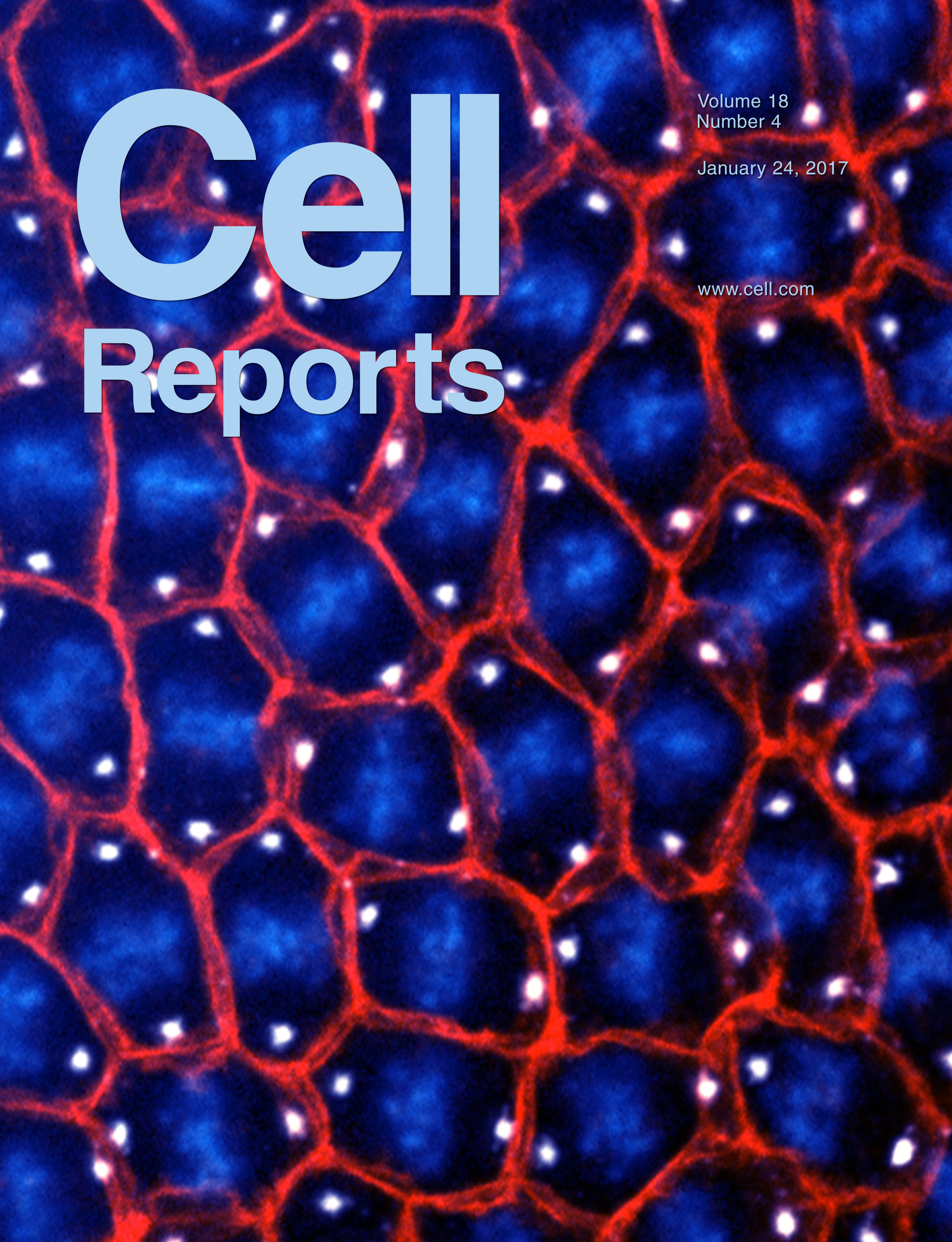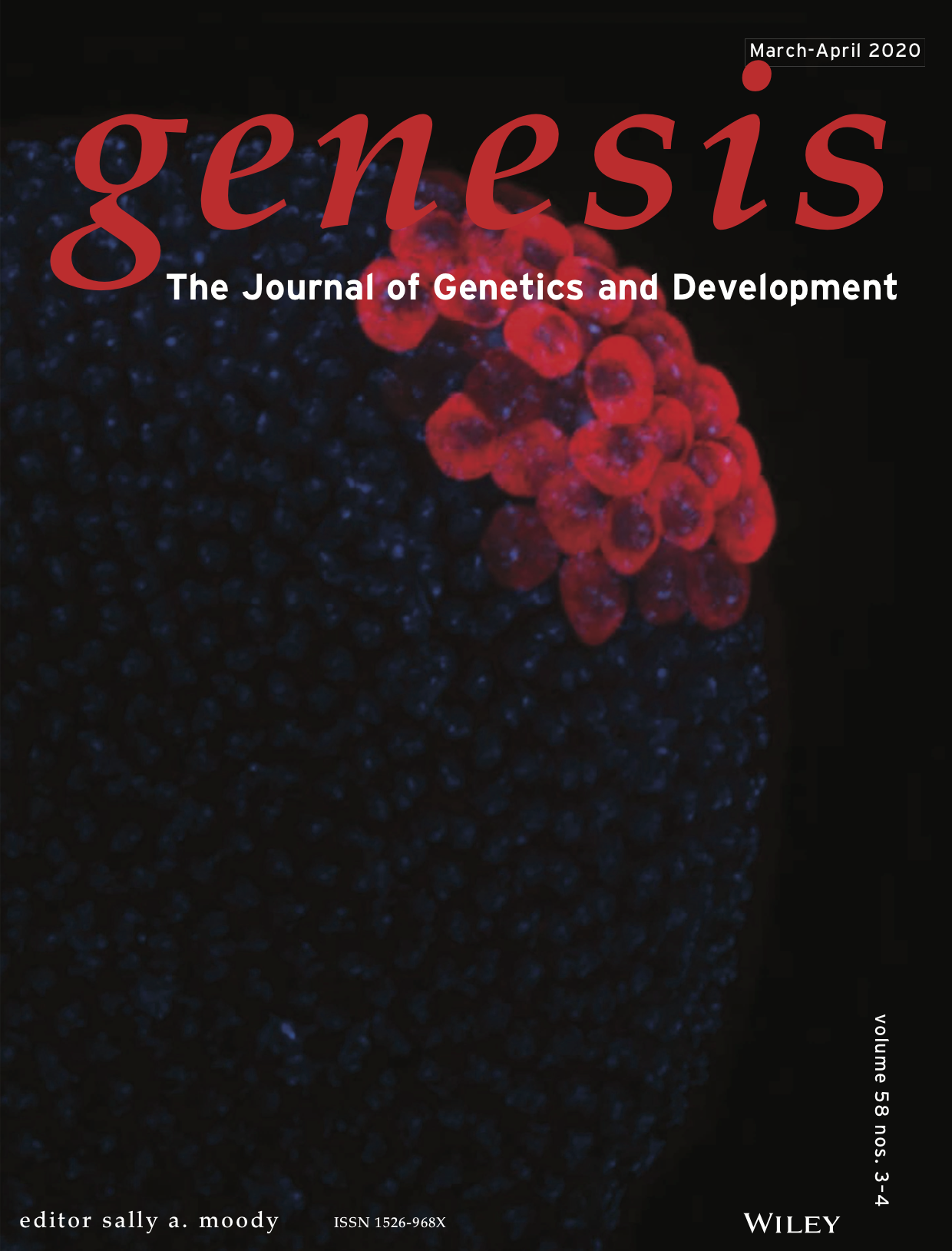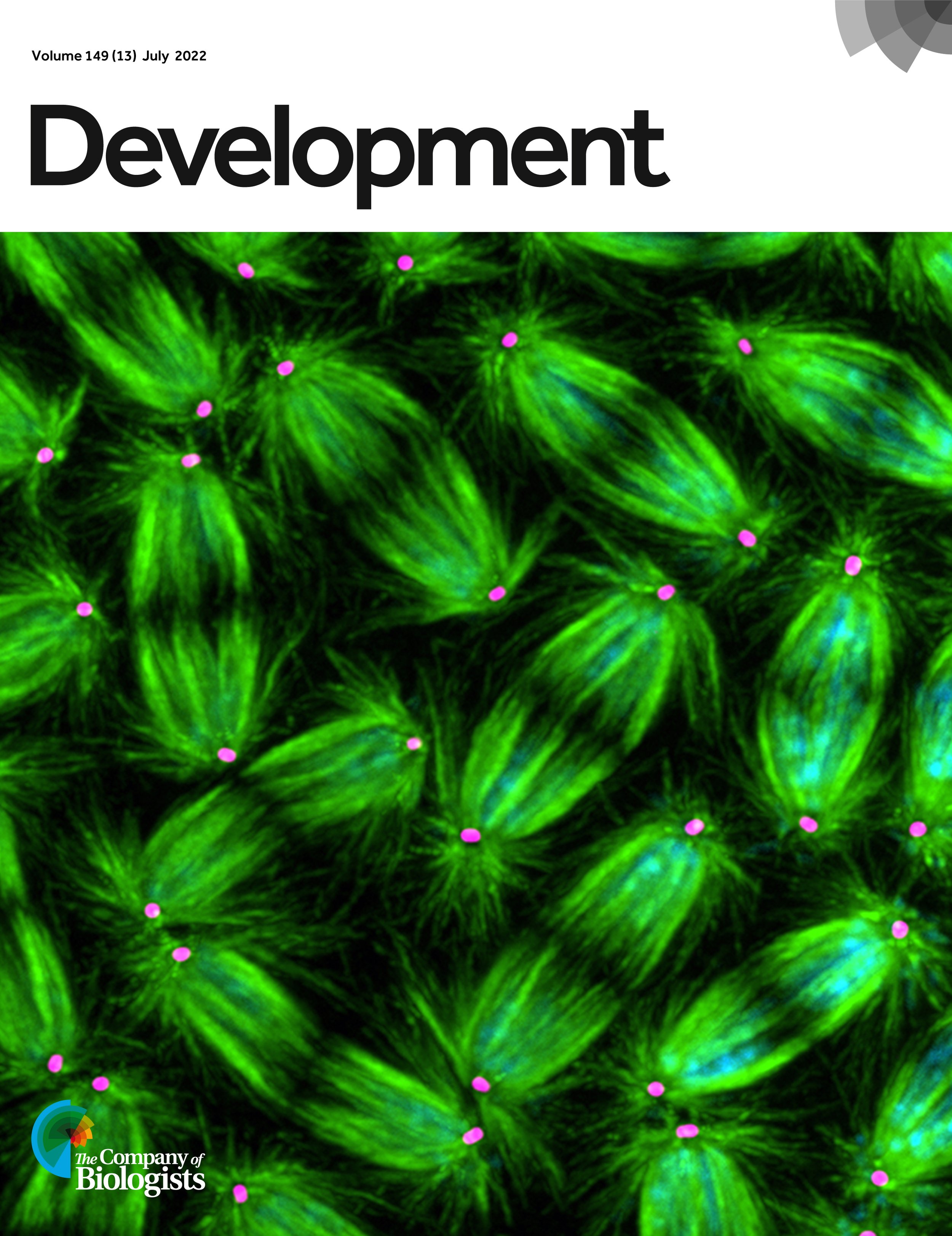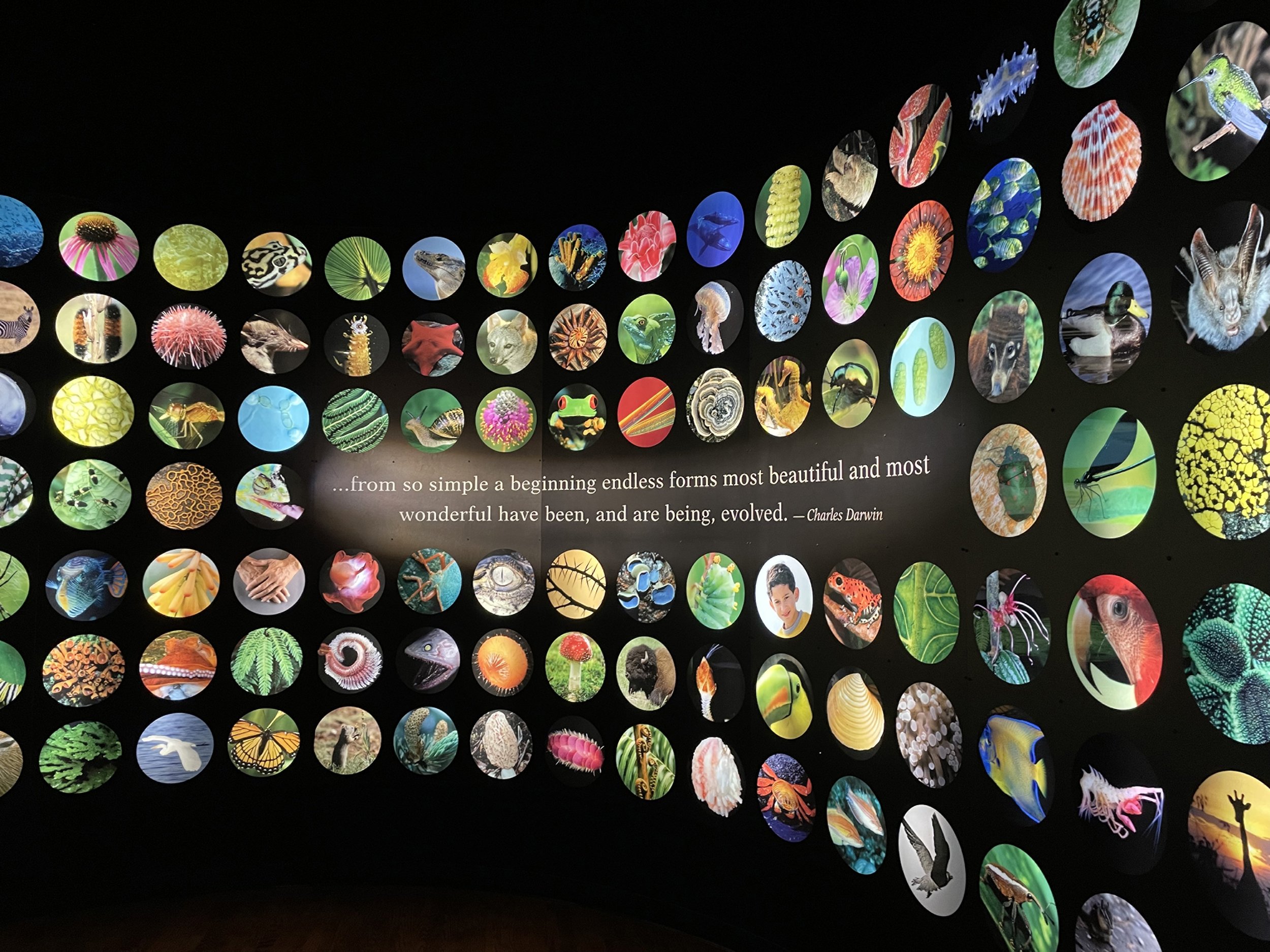
Research
CENTROSOMES IN DEVELOPMENT & DISEASE
Centrosomes are the microtubule organizing centers of most eukaryotic cells tasked with building the bipolar mitotic spindle that segregates the duplicated genome into two daughter cells during cell division. As such, centrosomes are integral to maintaining genome stability. Centrosomes orchestrate numerous critical tasks beyond cell division: cell polarization and migration, intracellular trafficking, and ciliogenesis.
Given these critical roles, centrosome dysfunction is the leading cause of microcephaly and is also associated with sterility, ciliopathy, poor cancer prognosis, and other disorders.
Cell cycle-dependent oscillations in composition and organization contribute to the multifunctional nature of centrosomes. We study how these dynamic changes instruct centrosome activity and function. Our goal is to elucidate mechanisms of centrosome regulation in the context of normal development and how these regulatory paradigms go awry in models of human disease or developmental disorders.
People
Lerit Lab, August 2022. Photo credit: Dr. Joanna Wardwell-Ozgo
We are an interdisciplinary research group in the Department of Cell Biology at Emory University School of Medicine.

Publications
Click here for PubMed
See Dorothy present our early work studying RNA localization in Drosophila embryos at the 2019 ASCB Teaching Tomorrow’s Scientists regional meeting.
We post preprints on biorxiv.org
Fang, J.*, Tian, W.*, Quintanilla, M.A., Beach, J.R., and Lerit, D.A. The PCM scaffold enables RNA localization to centrosomes. bioRxiv 2024.01.13.575509; doi: https://doi.org/10.1101/2024.01.13.575509
Brockett, J.S., Manalo, T., Zein-Sabatto, H., Lee, J., Fang, J., Chu, P., Feng, H., Patil, D., Davidson, P., Ogan, K., Master, V.A., Pattaras, J.G., Roberts, D.L., Bergquist, S.H., Reyna, M.A., Petros, J.A., Lerit, D.A.#, and Arnold, R.S.# A missense SNP in the tumor suppressor SETD2 reduces H3K36me3 and mitotic spindle integrity in Drosophila. Genetics. 226(4):iyae015. #corresponding authors
Hailstock, T.*, Terry, D.*, Wardwell-Ozgo, J.*, Robinson, B.V., Moberg, K.H., and Lerit, D.A. (2023) Colorimetric synchronization of Drosophila larvae. Current Protocols. 3(10): e924. *, equal contribution
Fang, J. and Lerit, D.A. (2022) Orb-dependent polyadenylation contributes to PLP expression and centrosome scaffold assembly. Development. 149(13):dev200426
>Cover feature
Lerit, D.A. (2022) Signed, sealed, and delivered: RNA localization and translation at centrosomes. Mol Biol Cell. 33(5):pe3
Zein-Sabatto, H. and Lerit, D.A. (2021) The identification and functional analysis of mRNA localizing to centrosomes. Front. Cell Dev. Biol. 9:782802
Colonnetta, M.M., Lym, L.R., Wilkins, L., Kappes, G., Castro, E.A., Ryder, P.V., Schedl, P., Lerit, D.A.#, and Deshpande, G.# (2021). Antagonism between germ cell-less and Torso receptor regulates transcriptional quiescence during germline/soma distinction. eLife. 10:e54346. #corresponding authors
Ryder, P.V.*, Fang, J.*, and Lerit, D.A. (2020) centrocortin mRNA localization to centrosomes is regulated by FMRP and facilitates error-free mitosis. Journal of Cell Biology. 219(12): e202004101 *, equal contribution
> Comment written by Daniela Zarnescu
Ryder, P.V.# and Lerit, D.A.# (2020) Quantitative analysis of subcellular distributions with an open-source, object-based tool. Biology Open. Epub Sept 2020. # corresponding authors
> First Person Interview with Pearl
Robinson, B.V., Faundez, V., and Lerit, D.A. (2020) Understanding microcephaly through the study of centrosome regulation in Drosophila neural stem cells. Biochemical Society Transactions. 48(5):2101-2115.
Fang, J. and Lerit, D.A. (2020) Drosophila Pericentrin-like protein promotes the formation of primordial germ cells. Genesis. 58(3-4):e23347. Epub Nov 2019
>Cover feature
Benner, L., Castro, E.A., Whitworth, C., Venken, K.J.T., Yang, H., Fang, J., Oliver, B.#, Cook, K.R., and Lerit, D.A.# (2019) Drosophila heterochromatin stabilization requires the zinc-finger protein Small Ovary. Genetics. 213(3):877-895 # corresponding authors
>Editorial Highlight
Ryder, P.V. and Lerit, D.A. (2018) RNA localization regulates diverse and dynamic cellular responses. Traffic. 19(7):496-502.
>Cover feature
Lerit, D.A.*#, Shebelut, C.W., Lawlor, K., Rusan, N.M., Gavis, E.R., Schedl, P., and Deshpande, G.*# (2017). Germ cell-less promotes centrosome segregation to induce germ cell formation. Cell Reports. 18(4): 831-839. * equal contributors, # corresponding authors
>Cover feature
Lerit, D.A.*# and Poulton, J.S.*# (2016). Regulation of proper centriole number is critical for genomic stability. Chromosome Research. 24: 5-17. * equal contributors, # corresponding authors
Lerit, D.A., Jordan, H.A., Poulton, J.S., Fagerstrom, C.J., Galletta, B.J., Peifer, M., and Rusan, N.M. (2015) Interphase centrosome organization by the PLP-Cnn scaffold is required for centrosome function. Journal of Cell Biology. 210(1): 79-97.
>Featured in JCB Biosights Video.
>Featured as a JCB Journal Club
Galletta, B.J.*, Guillen, R.X.*, Fagerstrom, C.J., Brownlee, C.W., Lerit, D.A., Megraw, T., Rogers, G.C., and Rusan, N.M. (2014). Drosophila Pericentrin requires Calmodulin for its function in vivo. Molecular Biology of the Cell. 25(18): 2682-2694 * equal contributors
Lerit, D.A., Plevock, K.M., and Rusan. N.M. (2014). Live imaging of Drosophila larval neuroblasts. Journal of Visualized Experiments. (89), e51756.
Lerit, D.A. and Rusan, N.M. (2013). PLP inhibits the activity of interphase centrosomes to ensure their proper segregation in stem cells. Journal of Cell Biology. 202(7):1013-1022.
>Featured in JCB In Focus.
Lerit, D.A., Smyth, J.T., and Rusan, N.M. (2013). Organelle asymmetry for proper fitness, function and fate. Chromosome Research. 21(3): 271-86.
Gopalakrishnan, J., Chim, Y.-C.F.*, Ha, A.*, Basiri, M.L.*, Lerit, D.A., Rusan, N.M., and Avidor-Reiss, T. (2012). Tubulin nucleotide status controls Sas-4-dependent pericentriolar material recruitment. Nature Cell Biology. 14(8): 865-873. * equal contributors
Lerit, D.A. and Gavis, E.R. (2011). Transport of germ plasm on astral microtubules directs germ cell development in Drosophila. Current Biology. 21(6): 439-448.
>Recommended by F1000
Becalska, A.N.*, Kim, Y.R.*, Belletier, N.G., Lerit, D.A., Sinsimer, K.S., and Gavis, E.R. (2010). Aubergine is a component of a nanos mRNA localization complex. Developmental Biology. 349(1): 46-52. * equal contributors
Korpal, M., Yan, J., Lu, X., Xu, S., Lerit, D.A., and Kang, Y. (2009). Imaging transforming growth factor-b signaling dynamics and therapeutic response in breast cancer bone metastasis. Nature Medicine. 15(8): 960-966.

Contact
Lerit Lab
Department of Cell Biology
Emory University School of Medicine
615 Michael St. | Room 465 Whitehead Building
Atlanta, GA 30033
LAB PHONE:
(404) 727 3758
EMAIL US:
DLERIT@EMORY.EDU
Lerit Lab Diversity Statement
“We believe that a diverse scientific team is vital for the success of biomedical research.“
Science is a global endeavor that touches all of humanity. We acknowledge data from the National Science Foundation and National Academies that says academic research suffers from underrepresentation, bias, and discrimination (1,2). Neither science, research, nor education operate in a vacuum; they are influenced by societal issues, and vice versa.
The Lerit Lab welcomes, supports, and advocates for trainees from varied intersectional identities, including individuals of different gender identities, sexualities, racial and ethnic backgrounds, socioeconomic status, religious affiliations, disabilities, countries of origin, family statuses, and other personal identities. We believe that a diverse scientific team is vital for the success of biomedical research. More diverse teams are more effective problem-solvers (3,4); and performance scales with representation (5). We are committed to maximizing equitable access to education and research opportunities to promote a robust, well-trained, and diverse scientific workforce for the future.
As a research mentor, Dr. Lerit is dedicated to the individual successes of her trainees and recognizes there is no “one-size-fits-all” mentorship style. Her recruitment of undergraduate students, graduate trainees, postdoctoral fellows, and research staff reflects a commitment to fostering a broadly diverse team of talented, curious, and engaged scientists and scholars. Their success is marked by individual fellowships, awards, publications in respected scholarly journals, and successful advancement within their chosen career paths.
This statement was written by Dr. Lerit with guidance from the Biochemistry, Cell, and Developmental Biology (BCDB) Diversity, Equity, and Inclusion (DEI) Committee and feedback from members of the Lerit Lab to express our desire to promote DEI in the Lerit laboratory.
Promoting DEI Beyond the Lab:
Dr. Lerit promotes DEI initiatives through various leadership roles. She serves on the Executive Committees of the BCDB and Genetics and Molecular Biology (GMB) Graduate Programs, where she is actively involved in recruiting and advocating for graduate students. She is a member of the Atlanta Society of Mentors and a Research Mentor for the Emory FIRST IRACDA Program (6). Within the Department of Cell Biology, Dr. Lerit spearheaded and chaired (2020–2023) the Trainee Spotlight feature to promote and advocate the scholarship and DEI achievements of trainees across all ranks (7). For this and other efforts to enhance DEI, Dr. Lerit was recognized as a “Hidden Gem” from the Emory University School of Medicine (8). To “foster the development of an inclusive academic scientific environment,” Dr. Lerit is completing culturally responsible mentorship training as an HHMI Gilliam Advisor. Presently, Dr. Lerit chairs the Department of Cell Biology Diversity Council, serving as liaison to the School of Medicine Diversity Council.
Emory University and the School of Medicine provide resources to individuals and groups to foster an inclusive and culturally aware environment, promote wellness, and address violations to Emory policies (9, 10).
last updated: Sept 2023

